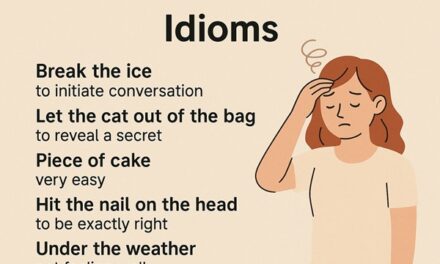What are proverbs?
A proverb is a short, memorable saying that expresses a truth, piece of advice, or observation about life. Proverbs have been passed down through generations and are part of our cultural heritage. They often use simple, vivid language and sometimes contain metaphors or comparisons to make their point.
How proverbs work
Proverbs typically:
– Express wisdom or truth
– Use simple, memorable language
– Often contain metaphors or comparisons
– Can be applied to many different situations
– Reflect cultural values and experiences
Using proverbs in communication
Proverbs can make your writing and speech more interesting and effective. They can:
– Emphasize a point you’re trying to make
– Add wisdom to your advice
– Make your message more memorable
– Connect with cultural knowledge
For example:
Instead of saying “You should be patient,” you could say, “Remember, Rome wasn’t built in a day.”
Instead of “Don’t judge quickly,” you could say, “Don’t judge a book by its cover.”
Common proverbs and their meanings
- Actions speak louder than words
Meaning: What people do is more important than what they say they will do.
- All that glitters is not gold
Meaning: Things that look valuable on the outside may not be truly valuable.
- Better late than never
Meaning: It’s better to do something late than not do it at all.
- Practice makes perfect
Meaning: Regular practice of a skill leads to improvement.
- A stitch in time saves nine
Meaning: Taking care of a problem early prevents it from becoming bigger.
- When in Rome, do as the Romans do
Meaning: Adapt to the customs of the places you visit.
- Don’t put all your eggs in one basket
Meaning: Don’t risk everything on a single venture.
- Every cloud has a silver lining
Meaning: Every difficult situation has some positive aspect.
- A penny saved is a penny earned
Meaning: Saving money is as valuable as earning it.
- Birds of a feather flock together
Meaning: People with similar interests or characteristics tend to gather together.
- Look before you leap
Meaning: Consider possible consequences before taking action.
- Too many cooks spoil the broth
Meaning: Too many people involved in a task can ruin it.
- The early bird catches the worm
Meaning: Those who arrive first or start early have the best chance of success.
- Where there’s a will, there’s a way
Meaning: If you’re determined enough, you can find a way to achieve your goals.
- Out of sight, out of mind
Meaning: People or things that are no longer visible are easily forgotten.
Additional Notes
– Encourage the child to share proverbs from their own cultures and families
– Use role-playing exercises to practice using proverbs in conversation
– Create visual aids showing the literal vs. figurative meanings of proverbs
– Discuss how proverbs reflect cultural values and wisdom
– Have the child keep a proverb journal where they record new proverbs they encounter

















